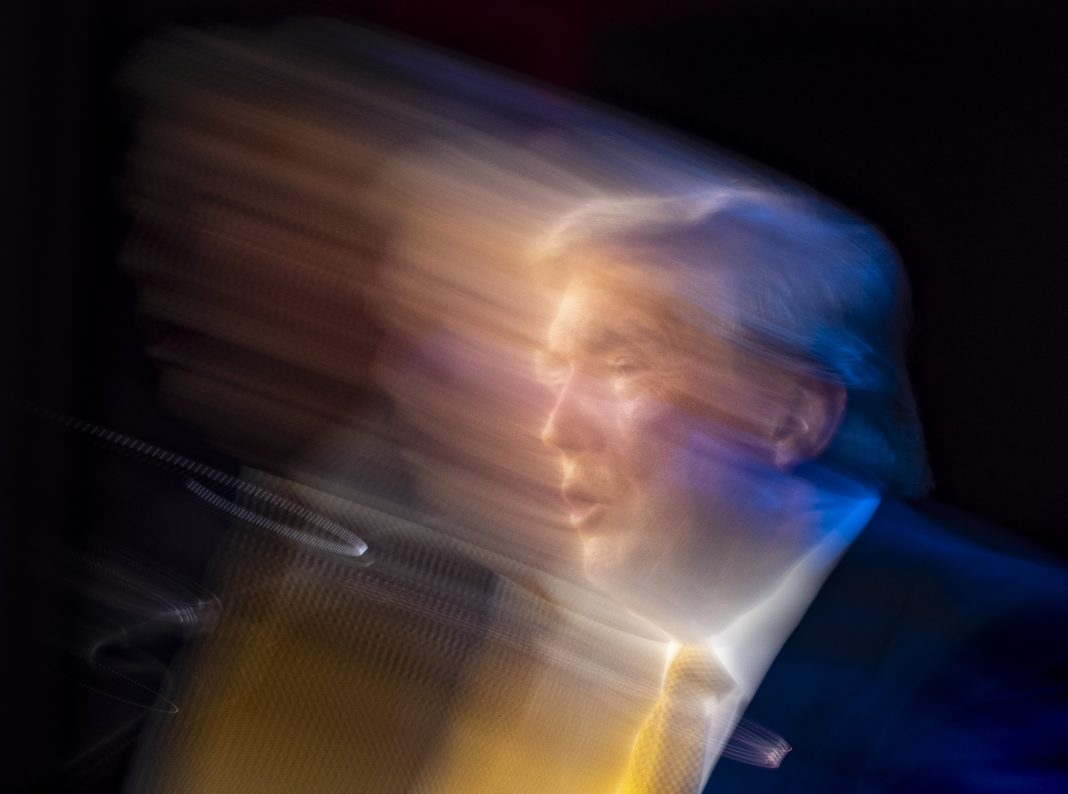At the Israel American Council Summit in Washington, D.C., on September 19, 2024, Donald Trump took the stage, not to discuss pressing national issues, but to further entrench himself in a narrative steeped in conspiracy theories and divisive rhetoric. This third presidential campaign has become a platform for a troubling blend of racism, anti-intellectualism, and a cavalier disregard for factual discourse. Instead of addressing the complexities of contemporary America, Trump has opted to lead his supporters down a rabbit hole filled with outlandish claims—ranging from the absurd notion that immigrants are kidnapping and consuming pets to the baseless assertion that the 2020 election was stolen.
Central to Trump’s campaign is a cadre of controversial figures, including Laura Loomer, JD Vance, and Robert F. Kennedy Jr., all of whom have built their careers on disseminating conspiracy theories. This coalition is not merely a collection of fringe voices; it represents a concerted effort to reshape the political landscape by appealing to the fears and anxieties of a significant segment of the American populace. According to a 2021 study published in the journal *Political Psychology*, individuals who identify strongly with conspiracy theories often exhibit a distrust of established institutions, which aligns with Trump’s strategy of undermining the credibility of experts and government officials.
The underlying theme of Trump’s rhetoric is a calculated exploitation of racial fears, particularly concerning immigration. His campaign echoes sentiments reminiscent of his 2016 launch, where he infamously labeled Mexican immigrants as “criminals” and “rapists.” However, the current iteration is even more focused on stoking xenophobic fears, particularly among white Americans who feel threatened by the demographic shifts of recent decades. This tactic not only serves to rally his base but also distracts from substantive policy discussions that could address the real challenges facing the nation.
In a chilling parallel, Trump’s rhetoric can be likened to the historical “Blood and Soil” slogan, which called for a racially pure nation. This phrase encapsulates the essence of what Trump and his supporters are advocating: a vision of America that is fundamentally exclusionary, prioritizing ethnic homogeneity over the nation’s foundational ideals of diversity and inclusion. As political commentator Jamelle Bouie pointed out, the propagation of false narratives—such as the claim that Haitian immigrants in Springfield, Ohio, are involved in bizarre and violent acts—serves to create a climate of fear and division.
The consequences of these conspiracy-laden narratives are tangible. In Springfield, the unfounded claims have incited threats of violence, prompting intervention from local law enforcement. Republican Governor Mike DeWine has had to step in to debunk these rumors, highlighting the dangerous ripple effects of Trump’s rhetoric. JD Vance, who has aligned himself closely with Trump, has been particularly egregious in his perpetuation of these lies. Despite being informed of their falsehood, he has doubled down, suggesting that these fabrications are a necessary evil to draw attention to the struggles of American citizens. This willingness to distort reality for political gain raises profound ethical questions about the responsibilities of public figures.
Vance’s transformation from a respected author and critic of Trump to a willing participant in the conspiracy theory machine is emblematic of a broader trend within the Republican Party. As the GOP increasingly embraces conspiracy theorists, it risks alienating well-informed and educated voters, who are essential for a healthy democracy. Instead, Trump’s campaign seems to thrive on a base of “low information voters,” who are more susceptible to his incendiary claims.
The implications of this shift are far-reaching. As the political landscape becomes more polarized, the ability to engage in rational discourse diminishes. The reliance on conspiracy theories not only undermines the credibility of institutions but also erodes the very fabric of democratic engagement. As we witness this unfolding drama, it becomes crucial for voters to critically evaluate the information presented to them and to seek out credible sources that challenge the narratives being propagated by figures like Trump and his allies.
In conclusion, Trump’s current campaign strategy is a stark departure from traditional political discourse, favoring sensationalism over substance. By harnessing the power of conspiracy theories and exploiting racial fears, he has created a potent, albeit dangerous, political narrative. As the 2024 election approaches, it is imperative for voters to remain vigilant, discerning fact from fiction, and to hold accountable those who would seek to undermine the principles of democracy for personal or political gain. The stakes have never been higher, and the future of American democracy may very well depend on it.

